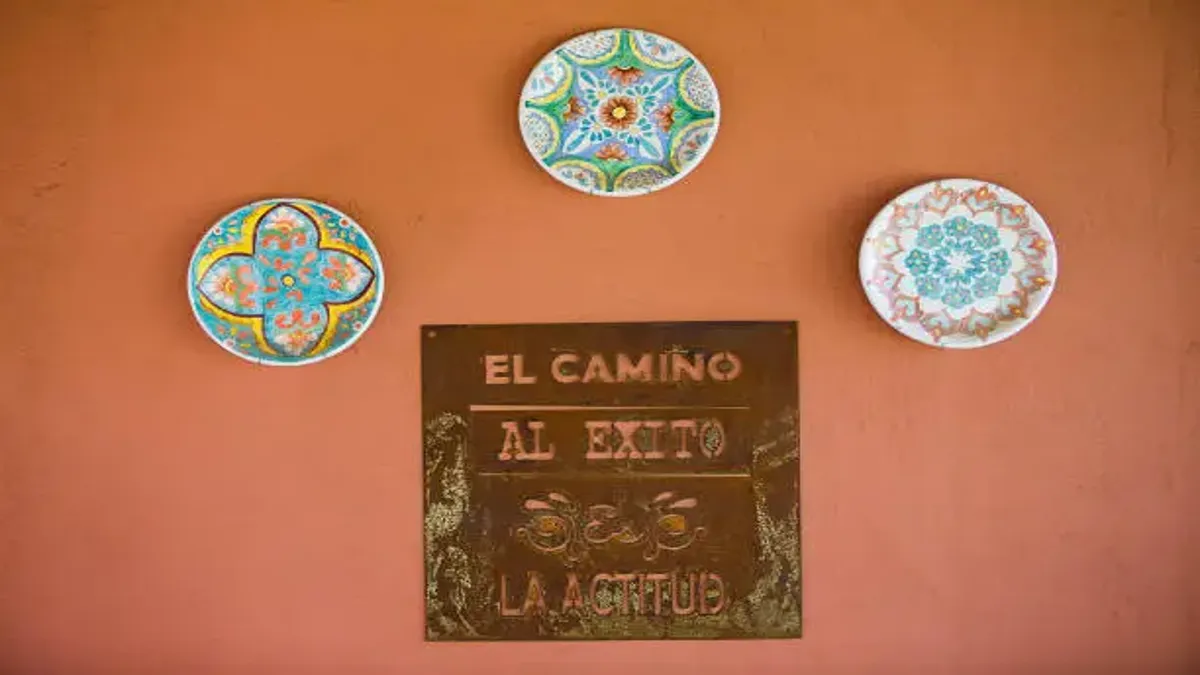Every language hides its small treasures—phrases that carry centuries of meaning within a few syllables. De Cantón is one of them. Within the first hundred words, the phrase reveals both geography and spirit, a declaration of origin and a statement of identity. Literally meaning “from Cantón” or “of the region,” it has evolved far beyond its linguistic boundaries, becoming a cultural emblem across Spanish-speaking communities. Whether invoked in Latin American towns, historical documents, or the global diaspora, de Cantón signifies more than a location—it signifies belonging. In its cadence lives the echo of home, the lineage of family, and the quiet pride of those who carry their land within their name.
The Linguistic Roots of “De Cantón”
The phrase de Cantón originates from Spanish, where de means “of” or “from,” and cantón refers to a district, province, or county. The word cantón itself comes from the Latin cantus and the French canton, meaning corner, region, or enclave. Over centuries, the term spread through Europe and Latin America, eventually adopting administrative and cultural meanings. In countries like Costa Rica, Ecuador, and Switzerland, cantón denotes a formal territorial division; in colloquial Spanish, it can also mean a neighborhood or small community. Thus, de Can-tón linguistically frames someone’s belonging—an indicator of roots, home, and localized identity.
Historical Context: From Colonial Maps to Modern Speech
During the Spanish colonial era, Latin American territories were divided into cantones—small administrative zones within larger provinces. To say someone was de Cantón meant to specify their regional origin. In archives, census records, and church registries, the term often followed surnames, marking heritage and jurisdiction. With time, it transformed from bureaucratic label to cultural badge. As families migrated within or beyond their borders, de Can-tón became shorthand for authenticity—a way of saying, “I come from somewhere, and it matters.”
| Historical Period | Use of “De Cantón” | Function |
|---|---|---|
| Colonial Era (16th–19th c.) | Official administrative descriptor | Territorial identity within empires |
| Early Republics (19th–20th c.) | Regional designation in local governance | Civil and cultural distinction |
| Modern Era | Colloquial and genealogical reference | Expression of heritage and pride |
The Geographic Meanings of “Cantón”
Though its literal meaning shifts by geography, the spirit of cantón remains the same—community within a larger whole. In Ecuador and Costa Rica, cantons serve as second-level administrative divisions, akin to counties. In Switzerland, they form the foundation of federalism. In Mexico, el cantón can mean the hometown or a local neighborhood, charged with emotion rather than governance. Each usage layers de Can-tón with nuanced meaning: part civic identity, part sentimental geography.
| Country | Meaning of “Cantón” | Example of Use |
|---|---|---|
| Costa Rica | Second-level administrative unit | “San José es un cantón central.” |
| Ecuador | Regional municipality | “Nací en el cantón de Loja.” |
| Switzerland | Federal state or province | “Vengo del cantón de Vaud.” |
| Mexico | Neighborhood or local community | “Él es del cantón, de por acá.” |
A Phrase of Belonging
The power of de Cantón lies in its human intimacy. It doesn’t merely mark location—it marks connection. In Latin American oral traditions, it appears in folk songs, sayings, and poems as a declaration of pride. To be de Cantón is to belong not to an abstract country but to a tangible community—a place of roots, not borders. When someone introduces themselves as fulano de tal, de Can-tón, they are not citing geography but invoking memory: streets, elders, childhoods, rituals.
“In my town, being de Cantón meant knowing who grew the sugarcane and who baked the bread,” recalls a Costa Rican historian. “It wasn’t about lines on a map. It was about people.”
Read: The Rise of ‘End Wokeness Twitter: What It Means for Online Discourse
The Social Significance of “De Cantón” in Names and Identities
Over generations, de Cantón also took on life as part of surnames and place-based titles, connecting families to specific lands. In genealogical records, phrases like Juan Pérez de Can-tón denoted either lineage from a notable local family or affiliation with a district. Similar constructions—de León, de Burgos, de Toledo—trace their roots to medieval Spain, where de + place signified both nobility and origin. Thus, de Cantón carries a dual legacy: a democratic expression of belonging and a historic echo of name-based geography.
Modern Usage and Cultural Adaptation
In contemporary speech, de Can-tón has transcended its administrative roots. Among Latin American youth, it often appears as an informal slang for one’s neighborhood—especially in Central America and Mexico, where el cantón means “home turf.” The phrase conveys camaraderie, authenticity, and community solidarity. Musicians and street poets have reclaimed it as a symbol of pride, representing local identity in contrast to globalization.
Common Contexts in Modern Use:
- Community Identity: “Somos del cantón, y aquí todos nos conocemos.”
- Cultural Expression: Used in songs, murals, and colloquial storytelling.
- Digital Media: Hashtags like #OrgulloDeCanton (Pride of the Canton) have appeared in local campaigns.
- Diaspora Language: Migrants use it to retain emotional ties to their hometowns.
“De Cantón” in Global Migration Narratives
The migration patterns of the 20th and 21st centuries gave de Can-tón a new dimension. As Latin Americans moved abroad—to the U.S., Europe, and beyond—the phrase became a linguistic bridge to home. It appeared in oral histories, immigrant organizations, and cultural festivals. To say soy de Cantón in a foreign city was to preserve belonging in transit. The term’s elasticity allowed it to represent both physical origin and emotional homeland.
“I may live in New York,” said a Salvadoran migrant, “but in my heart, I’m still de Can-tón. It reminds me where I learned to run, to sing, to live.”
The Sound and Symbolism of the Phrase
Linguistically, de Cantón rolls off the tongue with balance—two syllables that echo enclosure and origin. Phonetically, the nasal n and open ó invite warmth; semantically, the phrase fuses simplicity with significance. For linguists, this sound-symbolic resonance partly explains why such expressions endure—they are short enough to travel, yet deep enough to anchor identity.
| Linguistic Feature | Description | Cultural Impact |
|---|---|---|
| Prefix “de” | Indicates origin or belonging | Establishes relational identity |
| Root “cantón” | Means district or community | Connects personal to geographic identity |
| Phonetic balance | Smooth transition between consonants | Easy oral transmission, folkloric appeal |
Cultural Expressions and Creative Works
Artists and writers have used de Can-tón as motif and metaphor. In Latin American literature, it evokes nostalgia and authenticity; in music, it appears as refrain—a marker of origin sung with pride. The phrase’s universality allows it to cross genres: from Andean poetry to urban hip-hop, from folk ballads to social documentaries.
“Being de Cantón is not just a location—it’s a rhythm,” wrote Guatemalan poet Julio Ayala. “It’s how you speak, how you remember, how you love.”
Regional Variations and Interpretations
While the core meaning remains “of the district” or “from the region,” regional nuances enrich its interpretation:
| Region | Interpretation | Emotional Tone |
|---|---|---|
| Central America | From one’s neighborhood or hometown | Warm, communal |
| South America | From an official administrative canton | Civic, rooted |
| Caribbean | From a local parish or rural area | Nostalgic, lyrical |
| Spain | Historical surname element | Aristocratic, genealogical |
This regional plurality ensures that de Cantón functions as both specific and universal—a linguistic vessel that carries whatever meaning its speaker pours into it.
The Symbolic Economy of Place
Anthropologists describe de Cantón as part of a broader “symbolic economy of place,” where local identity gains cultural and emotional currency. In an era of globalization, such markers of origin counterbalance dislocation. Saying de Can-tón is a small act of resistance—a way to root oneself in an increasingly borderless world. Sociologists note how these linguistic affirmations strengthen social cohesion, especially in diasporic or marginalized communities.
Key Sociocultural Themes Reflected in “De Cantón”:
- Preservation of local identity amid migration
- Intergenerational transmission of belonging
- Linguistic continuity across class and geography
- Emotional resilience through cultural naming
The Dual Identity of “De Cantón”: Local and Global
What makes de Can-tón remarkable is its ability to belong to both village and world. In the small town, it’s a signature of local pride; abroad, it becomes a beacon of nostalgia. This duality mirrors the modern Latin American experience—rooted in tradition yet globally mobile. The phrase operates like a passport of the heart: issued by memory, stamped by movement.
“Every migrant carries a word that feels like home,” said sociolinguist Mariela García. “For many, that word is Cantón.”
“De Cantón” in Popular Culture and Digital Revival
The digital age has revived local language in unexpected ways. Hashtags like #SoyDeCanton, #OrgulloDeMiCantón, and #CantónPorSiempre trend across Latin American social media, blending civic pride with modern connectivity. Young people use the phrase to post images of festivals, food, and landmarks, transforming what was once a geographic label into an online identity. This linguistic reclamation bridges generations—elders hear their hometowns celebrated anew, while youth turn heritage into hashtag.
| Platform | Common Use | Example |
|---|---|---|
| Local festivals, street photography | #SoyDeCanton | |
| TikTok | Cultural dances, dialect clips | “Así se habla en mi cantón.” |
| Community announcements | “Fiestas patronales del Cantón 2025.” | |
| X (Twitter) | Civic activism | “Orgullo de Cantón, siempre presente.” |
Between Memory and Modernity
The endurance of de Ca-ntón shows how language evolves without erasing its past. It has survived colonization, modernization, and digitization precisely because it adapts. Each generation redefines it while keeping its essence intact: the connection between self and place. In an age of transient identities, this small phrase restores continuity.
The sociolinguist Ana Torres once described it best:
“When someone says they are de Cantón, they are not speaking to geography—they are speaking to memory. It’s a declaration that place lives inside people.”
Comparative Insight: “De Cantón” and Similar Expressions
| Expression | Language | Meaning | Parallel Theme |
|---|---|---|---|
| “Von dem Bezirk” | German | From the district | Administrative heritage |
| “Of the parish” | English | From the local area | Communal belonging |
| “Del barrio” | Spanish | From the neighborhood | Urban identity |
| “De Cantón” | Spanish | From the canton/region | Territorial and emotional identity |
The comparison shows that every culture possesses its version of de Cantón, yet few capture its blend of formality and intimacy as gracefully.
Philosophical Reflection: The Place Within
Beyond linguistics, de Cantón speaks to a universal truth: we are shaped by the places we call home. Geography molds memory; memory molds meaning. To be de Cantón is to carry both soil and soul—to belong simultaneously to earth and story. The phrase suggests that belonging is not static but lived, retold, and renewed through generations.
| Dimension | Interpretation | Reflection |
|---|---|---|
| Physical | Territorial origin | “I am from this land.” |
| Cultural | Shared customs and speech | “I belong to this community.” |
| Emotional | Sentimental continuity | “This place still lives in me.” |
The Future of “De Cantón”
As the 21st century reshapes notions of identity, de Cantón remains a touchstone of groundedness. It endures in documents, dialogue, and digital archives. Scholars predict that its meaning will continue to diversify—part historical term, part cultural emblem, part poetic refrain. The phrase’s adaptability ensures it will remain relevant in a world where mobility defines existence yet origin defines essence.
Conclusion: The Word That Carries Home
In the end, de Cantón is more than a phrase—it is a story folded into speech. It connects the individual to their landscape and the past to the present. To say de Cantón is to declare continuity in a world of change, to name one’s place in both geography and history. Whether spoken in a rural plaza, written in an archive, or hashtagged on a screen, it whispers the same message across time: identity begins at home.
FAQs
1. What does “de Cantón” literally mean?
It literally translates to “of the canton” or “from the district,” expressing origin or belonging to a specific region or community.
2. Where is the phrase “de Cantón” commonly used?
It is widely used in Spanish-speaking countries like Costa Rica, Ecuador, and Mexico, as well as in Switzerland’s administrative vocabulary.
3. Is “de Cantón” part of surnames?
Yes, historically it has appeared in surnames and place-based titles, linking families to ancestral lands or regions.
4. How is “de Cantón” used in modern slang?
In contemporary Latin American Spanish, especially in Central America and Mexico, el cantón colloquially refers to one’s home neighborhood.
5. Why is “de Cantón” culturally significant?
Because it represents both geographical belonging and emotional identity—a linguistic anchor in an age of movement and globalization.





